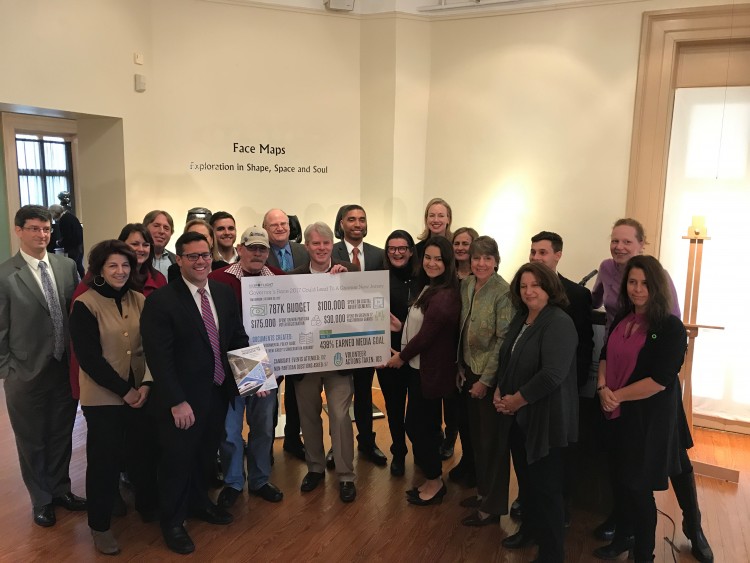
Governor Phil Murphy was sworn in to office on January 16, 2018, and with his new role comes the responsibility of addressing environmental issues facing the Garden State. In response to these challenges, New Jersey League of Conservation Voters Education Fund released Environmental Agenda ’18: New Jersey’s Conservation Roadmap, a report that contains expert recommendations and goals to address top environmental challenges and ensure a cleaner, greener New Jersey in mid-November. Environmental Agenda ’18 makes recommendations for Murphy's first 100 days, first year, and first term.
Environmental Agenda ’18 identifies priorities in the areas of clean water, climate change, open space, energy, coast/ocean, government, Department of Environmental Protection (DEP), infrastructure, and toxins. New Jersey LCV Education Fund worked with nearly 30 organizations, including 12 members of the Coalition for the Delaware River Watershed, to create Environmental Agenda ’18. Water is a top priority in Environmental Agenda '18 because New Jersey is failing to meet federal and state standards for water quality, and green planning practices are not being implemented.
First, Governor Murphy must ensure proper water planning in New Jersey. The State Water Supply Master Plan was updated last year, but it used antiquated data and lacked the comprehensive solutions needed to guide state water supply operations. The new administration can better protect the state's water resources by directing the DEP to update and re-propose the 2017 plan.
Additionally, Governor Murphy must address the rollbacks of clean water protections initiated by the previous administration. The Governor has an opportunity to safeguard our drinking water, ensure strong pollution standards, and discourage inappropriate development. Currently, Flat Brook, a tributary to the Delaware River in Sussex County, is the only waterway that even marginally meets all federal surface water quality standards.
Environmental Agenda ’18 also suggests fully funding the DEP as an essential priority for New Jersey. The DEP has suffered budget cuts over the last eight years and without proper funding they are unable to strengthen, or even enforce existing stormwater and water quality permits. Without enforcement, our water and public health suffers. The state should then allocate enforcement funds back in to the DEP or use these funds to improve environmental degradation instead of adding it to the general fund.
The Murphy administration must also improve pollution levels in New Jersey's water, particularly when it comes to lead. Many waterways in the state have exceeded federal Safe Drinking Water Act lead standards, and increased lead testing of drinking water is needed. Children are especially susceptible to lead poisoning and Environmental Agenda ’18 recommends requiring school and childcare centers to publicly disclose their lead testing results.
Environmental Agenda ’18 can set New Jersey up to be a national leader in environmental conservation and protections, and our hope is that these recommendations are taken to heart. While addressing water issues will be a challenge, the state's citizens, wildlife, and economy will only benefit. To read the full agenda, click here.